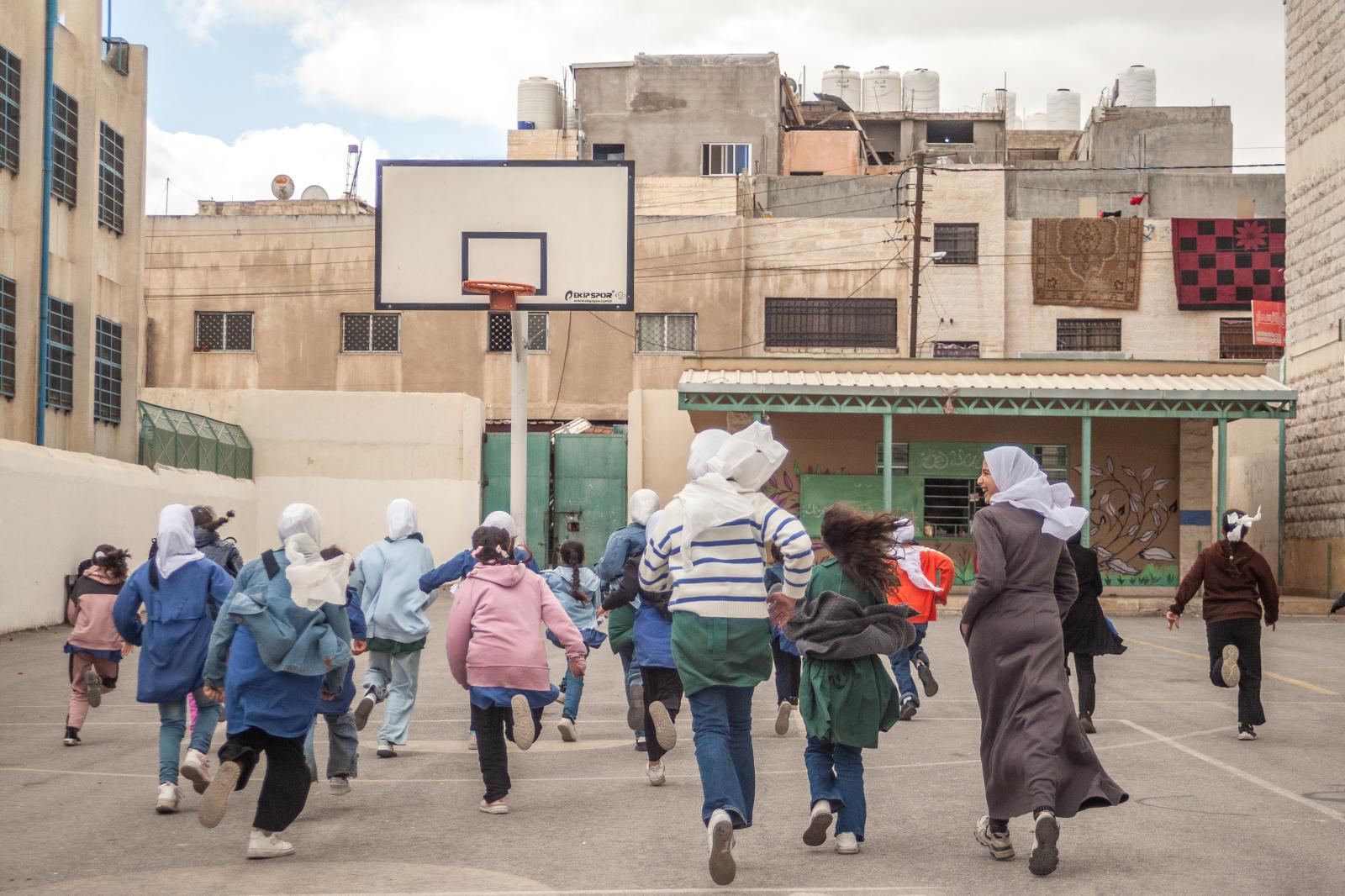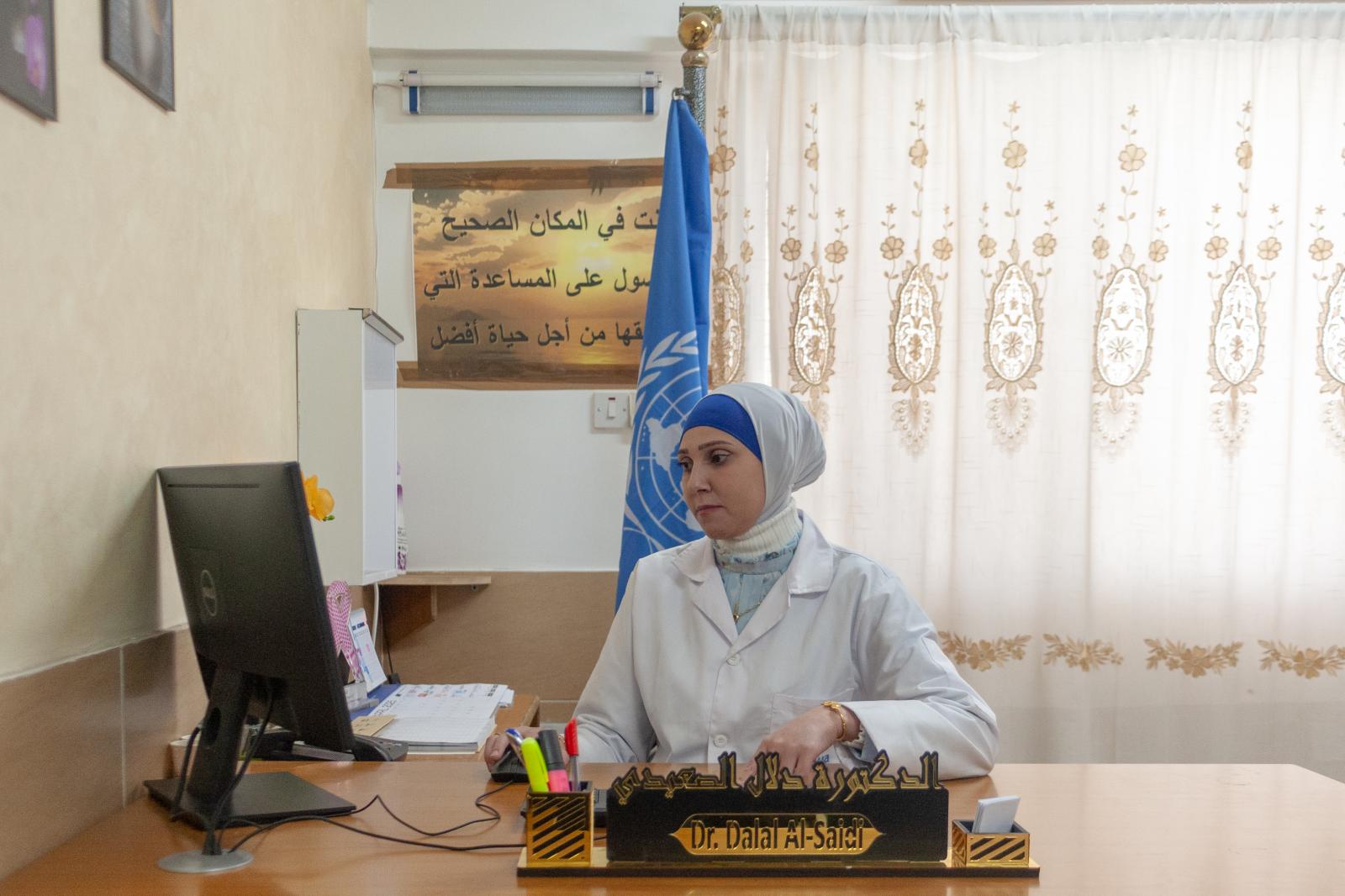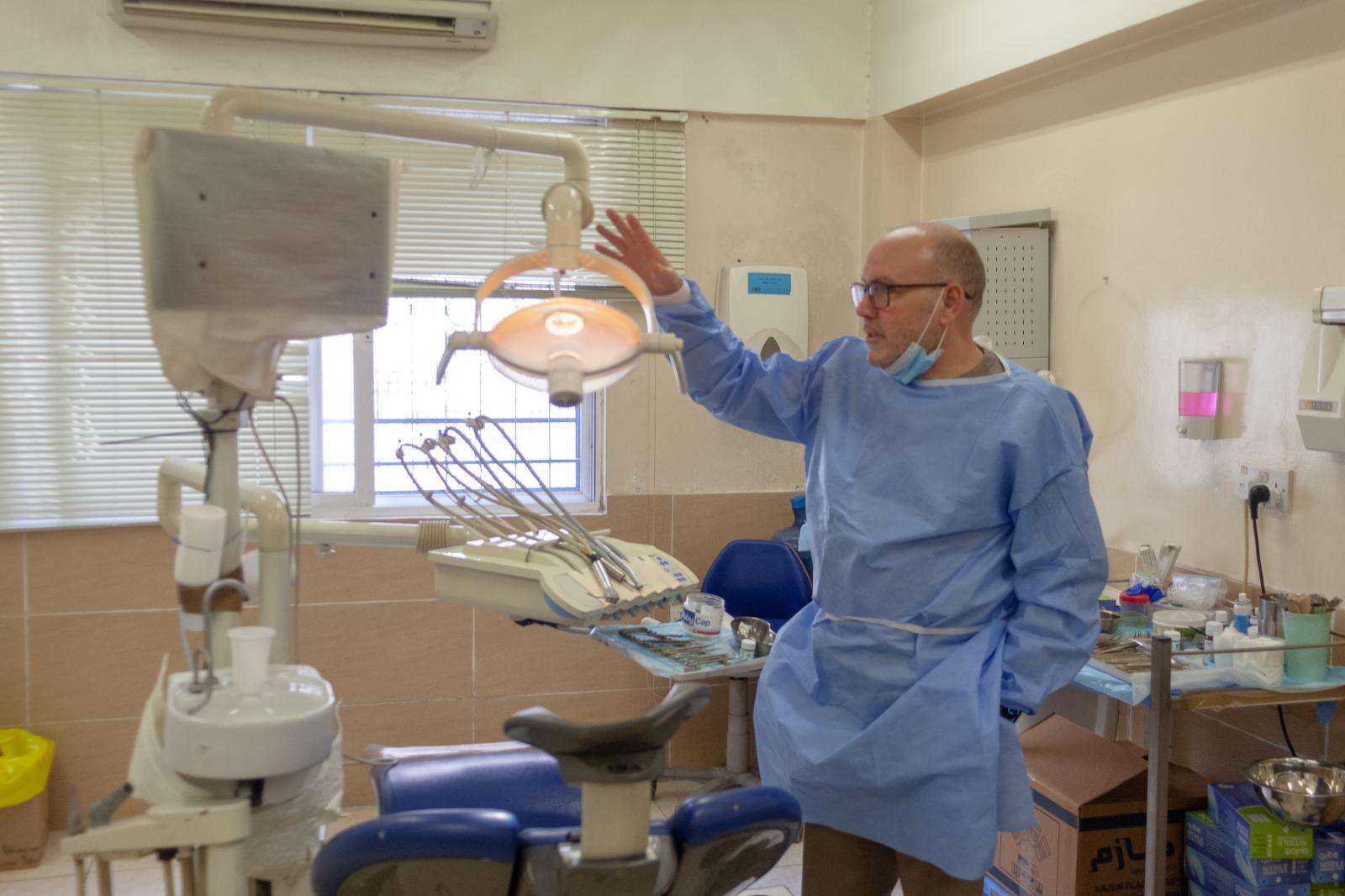Public Project
UNRWA in Focus: Education, Healthcare, and Resilience Among Palestinian Refugees in Jordan
Summary
In South Amman, Palestine refugees continue to pursue education and healthcare despite chronic funding shortages. UNRWA schools support both academic and creative growth, while clinics deliver essential services under resource strain. Students, doctors, and elders show how dignity and resilience endure preserving identity and building futures in the face of displacement and uncertainty.
Investing in Education: Beyond the Basics
At a school in South Amman, classrooms and playgrounds reflect the enduring commitment to education supported by the United Nations Relief and Works Agency for Palestine Refugees in the Near East (UNRWA). Palestine refugee children continue their studies, even as limited resources and growing operational challenges place additional pressure on the education system. Sahira Dwiek, an Education Officer overseeing 44 schools with almost 29,000 students, explains: “UNRWA operates many purpose-built schools with facilities such as libraries, science laboratories, and recreational areas. Some schools, however, are located in rented buildings not originally designed for education, where space limitations restrict opportunities for creative and extracurricular activities.”
Among the students is Rimas Firas, a 16-year-old who balances a love for photography with her ambition to study medicine at the University of Jordan. “I want to become a doctor, but I will continue with photography as well,” Rimas said. “If I could travel anywhere, I would like to go to Switzerland because of the great nature there. I am more interested in photographing landscapes than people". Rimas represents a growing number of students encouraged to develop both academic and creative skills as part of UNRWA’s broader focus on critical thinking and holistic education. However, international aid cuts particularly after the withdrawal of U.S. funding have made it harder to maintain programs and facilities
Among the students is Rimas Firas, a 16-year-old who balances a love for photography with her ambition to study medicine at the University of Jordan. “I want to become a doctor, but I will continue with photography as well,” Rimas said. “If I could travel anywhere, I would like to go to Switzerland because of the great nature there. I am more interested in photographing landscapes than people". Rimas represents a growing number of students encouraged to develop both academic and creative skills as part of UNRWA’s broader focus on critical thinking and holistic education. However, international aid cuts particularly after the withdrawal of U.S. funding have made it harder to maintain programs and facilities
Healthcare on the Frontlines: Strength and Innovation
At the South Amman Health Centre, Dr. Dalal Al Saidi, Head of Centre, leads the healthcare response for Palestine refugees. Despite financial pressures, her team continues to deliver essential primary healthcare services as part of UNRWA’s network of 25 health centers in Jordan, which together provided approximately 1.6 million medical consultations in 2024, according to Dr. Dalal. “At UNRWA health centers, we provide comprehensive primary healthcare for Palestine refugees, including chronic disease management, maternal health services, mental health support, and preventive care,” Dr. Dalal said. “Recent funding cuts, combined with the additional support sent to Gaza during the conflict, have placed extra pressure on our services, but our commitment to delivering quality healthcare remains firm."Dental Services: Pressures on Basic Care
At the South Amman Health Centre, Dr. Amjad Halaiqah and his team manage over 50 patients daily, working with only one functioning dental unit that has been in use for more than sixteen years. Basic procedures such as extractions and fillings are provided, but a lack of equipment and funding prevents the clinic from offering advanced care like root canals and orthodontics. “Many of our patients, especially children and pregnant women, rely on UNRWA clinics because private care is simply unaffordable,” Dr. Amjad Halaiqah said. “With better resources, we could prevent more serious problems instead of only managing emergencies.”Laboratory Services: Diagnoses at Risk
The situation in the laboratory reflects a similar strain. Senior Technician Ms. Noor manages daily operations with only one functioning analyzer, while two others remain out of service, causing delays in test processing and reporting. Essential maintenance requires specialized engineers, and funding shortfalls have made equipment replacement increasingly difficult. “Working with a single machine slows down diagnostics and increases pressure on services,” said Senior Lab Technician Noor. “Without new analyzers, it is difficult to meet the growing needs of the community.”Maternal and Child Health: Small Victories
Amid ongoing challenges, there are small but important victories. A new micronutrient supplementation program for pregnant women, aligned with WHO guidelines, has reduced anemia rates by 30%, significantly improving maternal and newborn health outcomes. Supplements are provided free of charge, starting early in pregnancy to address vital nutritional needs. In another recent initiative, UNRWA clinics have introduced environmentally friendly paper-based prescriptions, replacing plastic envelopes to minimize waste and improve medication labeling. Practical Nurse Najwa Mahmoud oversees vaccinations, growth monitoring, and preventive care for infants and young children. Using both manual records and UNRWA’s health app available in English and Arabic she ensures that prescriptions, vaccinations, and health data are tracked accurately for every patient. “The micronutrient program has shown real success in reducing anemia among pregnant women who follow the treatment regularly,” said Dr. Dalal Al Saidi, Head of Health Centre.Memory and Identity: The Story of Ismail Muhammad
Beyond the clinics and schools, the legacy of displacement continues to shape lives. Ismail Muhammad was first displaced as a child during the Nakba of 1948, when his family fled to Gaza. Later, during the 1967 war, many Palestinians including Ismail faced further displacement amid renewed conflict. Today, he lives in Amman, Jordan, as part of the Palestine refugee community supported by UNRWA. For many refugees, the physical keys to their former homes became powerful symbols of hope and the right of return treasured reminders of a life left behind. Although Ismail eventually lost his family’s key, he never lost the connection to his roots. In the 1990s, during the Oslo peace process, limited travel permits allowed Palestinians like Ismail to briefly visit their homeland. “We lost the key, but not the dream,” said Ismail Muhammad.Conclusion: Sustaining Progress Amidst Challenges
Despite chronic funding shortages, operational challenges, and the enduring impact of displacement, Palestine refugees in Jordan continue to build their futures through education, healthcare, and community resilience. UNRWA’s schools and health centers remain critical lifelines, helping to sustain hope where hardship persists. Students like Rimas, health workers like Dr. Dalal and Najwa Mahmoud, and elders like Ismail Muhammad show that determination is not just about survival it is about preserving dignity, nurturing aspirations, and holding onto identity. Their stories remind us that even in uncertainty, the pursuit of knowledge, well-being, and home remains steadfast across generations
756












